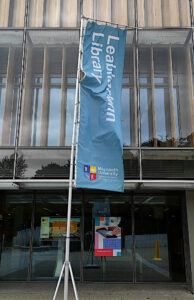A book edited by Dr. Jesús Tramullas and Dr. Piedad Garrido, University of Zaragoza (Spain)
Introduction
Library automation was an interesting research topic and a classical development in the eighties and nineties. However, during the last decade, big research effort was centered in digital libraries, leaving library automation in the background. Nevertheless, the beginning of web 2.0 and social networks favored the resurgence of library automation, since available methods and techniques made possible the design and implementation of novel ways of managing, accessing and dissemination of the information throughout libraries and information services. The combination of different technologies previously used in digital libraries, the integration of social network tools, and the popularization of digital information access through specialized devices have made possible that the research community, professionals and users of librarian systems and networks take up interest in library automation again, and user interaction, by means of OPACs 2.0.
As a result, a new research trend is being carried out. It includes the basis, techniques and tools for library automation, specially centered in information access from the end-users’ perspective, as service receivers, as well as active participants in the enrichment, participation and dissemination process of the digital information products. In this field of knowledge, the research and development has focused on information standards, data treatment and labeling, semantic web, information visualization, user interfaces, information literacy, e-books, social networks, etc. The interaction between digital world and social world has created the library 2.0 concept, an expression which integrates them. In order for library 2.0 to be possible, it is necessary for the research, development and smart integration of technological solutions, which assist users to satisfy their information access requirements.
Objectives
The objective of this book is to provide a reference source about theoretical and technical foundations of library automation in library 2.0 context. This publication will compile both the state of the art, and the key innovative projects about the matter.
Intended audience
This edited book will be an ideal reference book at university levels to bachelors, masters, research students and faculties in several areas spanning from library science, information science and knowledge management, and computer science Also, it is a must read source for librarians and information managers and experts who want to develop innovation information products based on 2.0 services.
Topic Areas
This book will invite submissions describing ongoing innovative work and applications on these interdisciplinary areas coving library automation, library 2.0 technologies and services, innovative OPACs, library data visualization, social networks on libraries, theory and best practices, metadata, etc. Specifically, book chapters include, but are not limited to:
- New and innovative library systems
- OPAC 2.0 products
- User interfaces for libraries and library systems.
- Library 2.0 services and products
- Library 2.0 user information behavior
- Social networks on libraries 2.0
- Library data visualization.
- Collaborative technologies on libraries
- Semantic libraries and open data
- Theory and reflection about library 2.0
Submission Guideline
UPDATE: Researchers and practitioners are invited to submit on or before November 30, 2010, a full text paper (8000-9000 words) to the editors (tramullas@unizar.es or piedad@unizar.es). All submitted chapters will be reviewed on a double-blind review basis. Sample Chapter Template must be used for it.
Publisher
To be published by IGI Global: http://igi-global.com/AuthorsEditors/AuthorEditorResources/CallForBookChapters/CallForChapterDetails.aspx?CallForContentId=4ae6e1c4-904b-4d83-8a4a-9ece2171fccb
Important Dates, UPDATED:
September 1, 2010: Proposal Submission Deadline
September 1 5, 2010: Notification of acceptance/rejection
November 30, 2010: Full chapter submission
December 20, 2010: Reviews Results Returned
January 30, 2011: Revised Chapter Submission
February 15, 2011: Final Deadline



